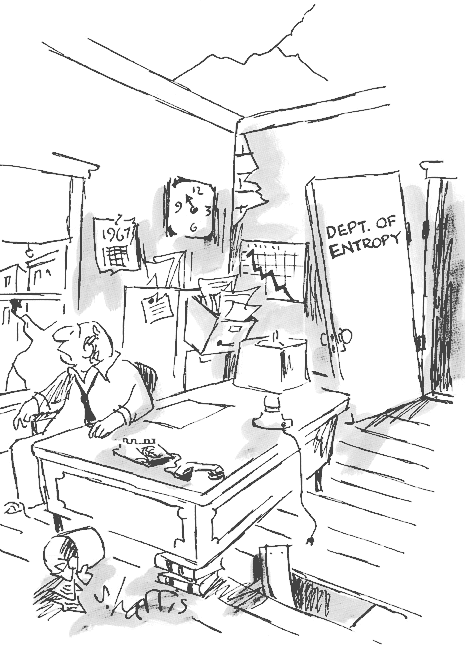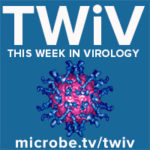 Hosts: Vincent Racaniello, Alan Dove, and Rich Condit
Hosts: Vincent Racaniello, Alan Dove, and Rich Condit
Vincent, Alan, and Rich answer listener questions about vaccinia virus, fungal viruses, synthetic viruses, influenza vaccine, HeLa cells, multiplicity of infection, and much more.
Click the arrow above to play, or right click to download TWiV #118 (68 MB .mp3, 94 minutes).
Subscribe (free): iTunes, RSS, email
Links for this episode:
- Distribution of glycoproteins on virion surface (paper 1, paper 2) – thanks, Conor!
- Susceptibility of cancer cell lines to tanapox (thanks, Cheryl!)
- Poxvirus family tree
- Sugar, the bitter truth (YouTube) – thanks, Mary!
- BBC podcast: Artificial life (thanks, Sam!)
- Arthritis and influenza at CDC
- Multiplicity of infection at virology blog
- Virus-like particle vaccines (thanks, Sheldon!)
- TWiV on Facebook
- Letters read on TWiV 118
Weekly Science Picks
Alan – What you need to know about infectious disease
Rich – Bad Project (YouTube)
Vincent – Federal research center will help develop medicines
Send your virology questions and comments to [email protected].


Hmm, I’m a bit skeptical of the definition of life involving decreasing entropy. Don’t prions (which I would argue are quite obviously not living) decrease the entropy of other native prion proteins, thus reproducing itself?
Hey guys,
love the podcast. I’ve been thinking about this since I started listening. Why all the discussion about “are viruses alive?” “Alive” is just a word in the English language. Viruses have been around likely for millions of years. My opinion is that trying to fit something into a predetermined definition causes one to force a square peg down a round hole. Why can’t viruses just be? They are there, they replicate, some have their own mechanisms, some “borrow” the host’s, some cause disease and some don’t. I think an objective viewpoint is the way to go as it circumvents dogma associated with trying to fit definitions.
-K
As someone on TWiV once said, it doesn’t matter if viruses are alive
or not – but the discussion is enlightening. You are right, that
‘alive’ is a word – we just think it’s instructive to talk about
what’s alive and what is not. The fact that our listeners are divided
about whether viruses are alive or not shows that the discussion is
worth having. I think it’s fun.
Also since you touched on nutrition this episode (great video by the way), if you have some spare reading time (I don’t, I’m a graduate student) check out this book:
http://www.youtube.com/watch?v=7HkqBxpPBeI
I’m in no way associated. I just think this guy blends evolutionary biology, biochemistry and nutrition into a nice context. It’s really changed my life for the better.
-K
Loved the show, especially the story of Dr. R’s first assignment in David Baltimore’s lab. FYI – Rebecca Skloot’s story of Henrietta Lacks’ lasting contributions to science will be told on HBO by Alan Ball (“6 Feet Under”), introducing an even larger audience to the important scientific and ethical issues the book describes.